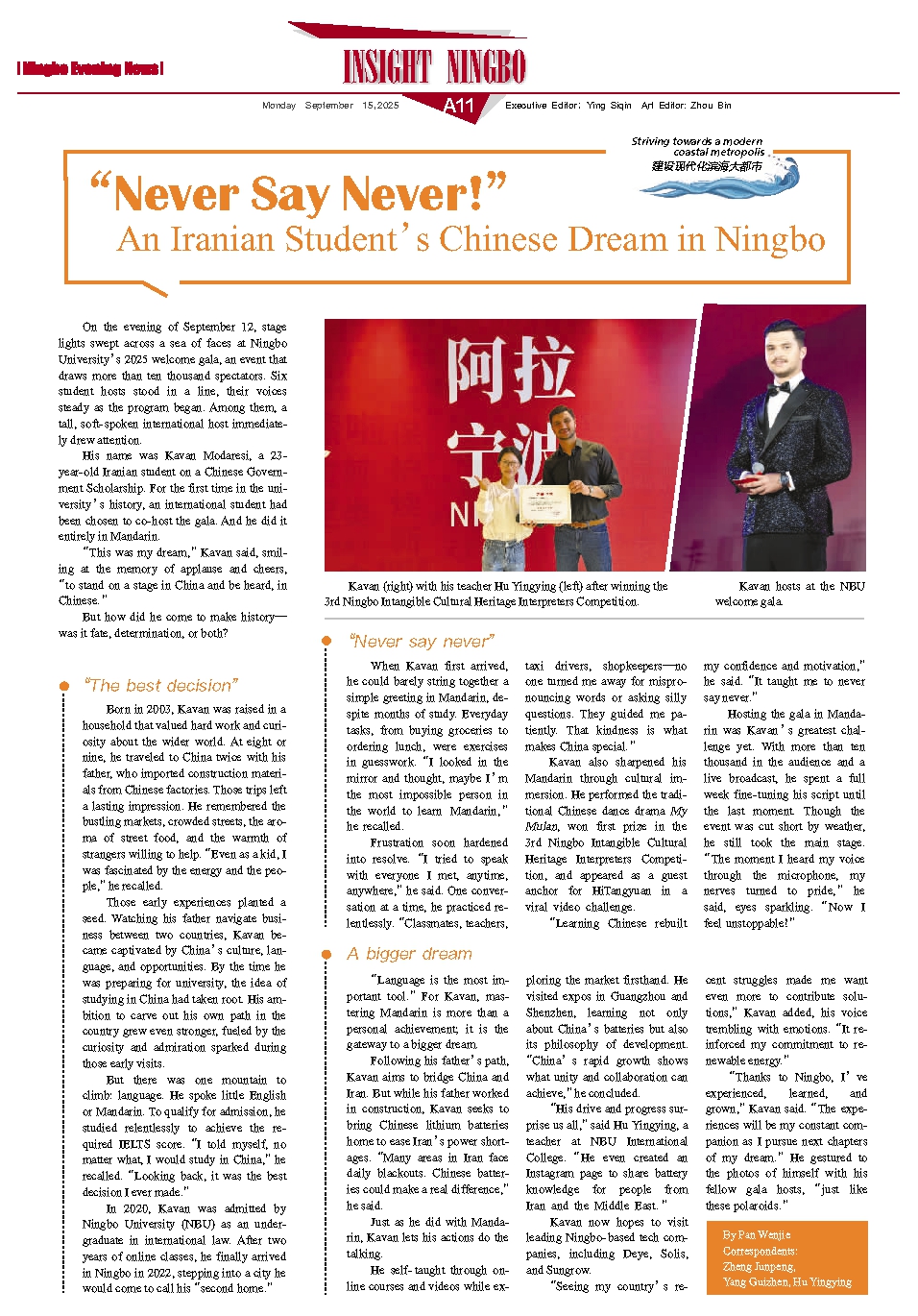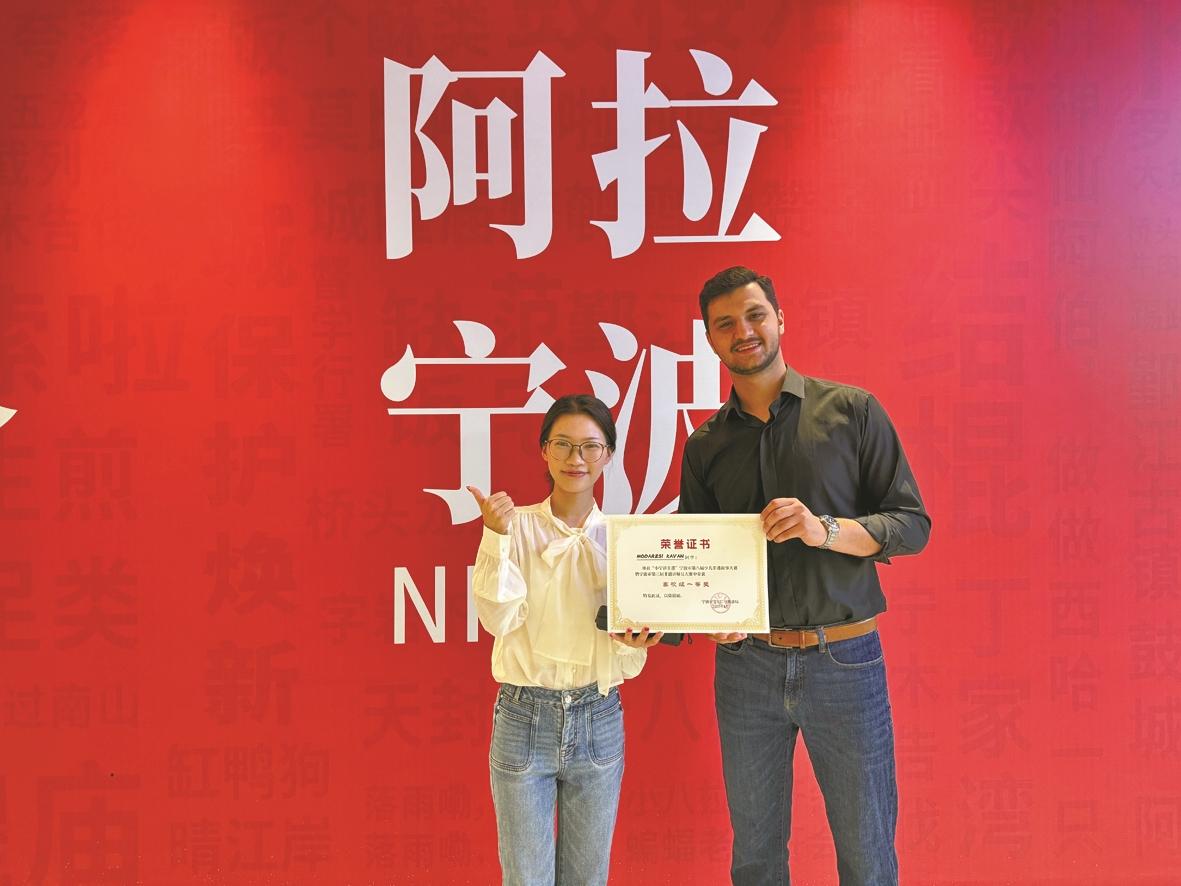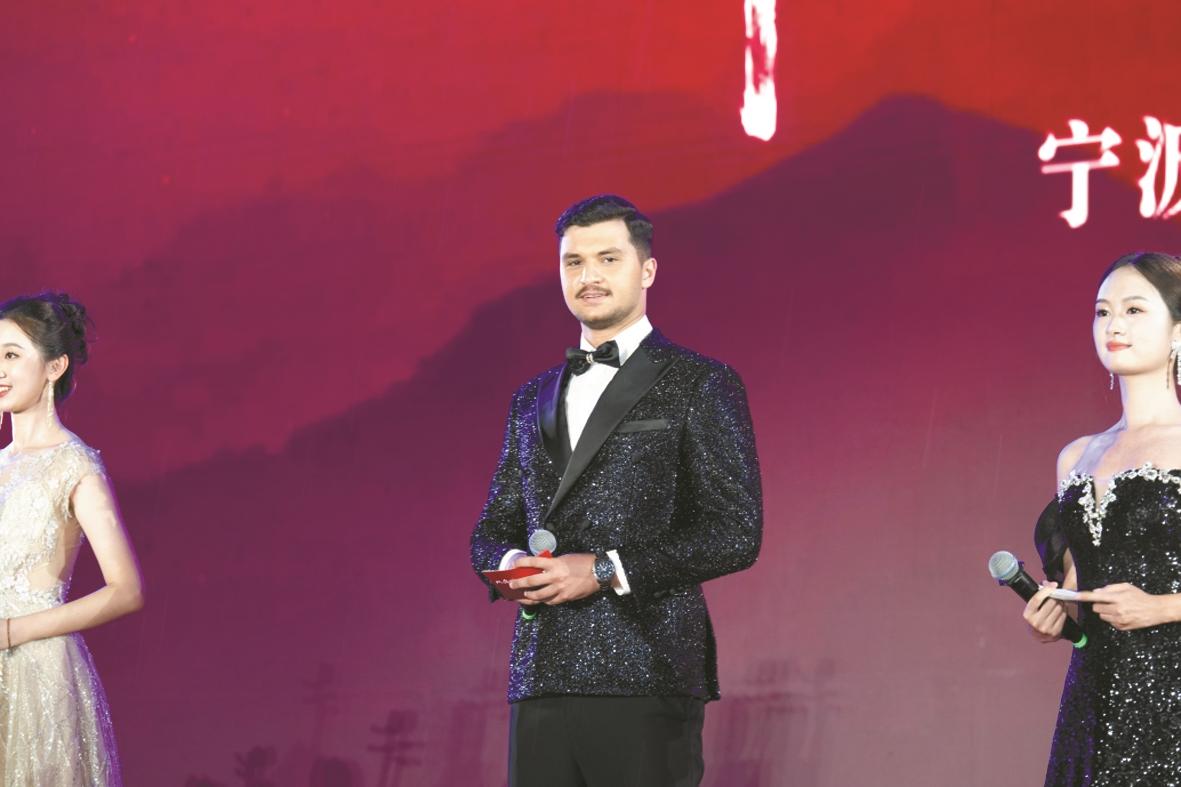On the evening of September 12, stage lights swept across a sea of faces at Ningbo University’s 2025 welcome gala, an event that draws more than ten thousand spectators. Six student hosts stood in a line, their voices steady as the program began. Among them, a tall, soft-spoken international host immediately drew attention.
His name was Kavan Modaresi, a 23-year-old Iranian student on a Chinese Government Scholarship. For the first time in the university’s history, an international student had been chosen to co-host the gala. And he did it entirely in Mandarin.
“This was my dream,” Kavan said, smiling at the memory of applause and cheers, “to stand on a stage in China and be heard, in Chinese.”
But how did he come to make history—was it fate, determination, or both?
“The best decision”
Born in 2003, Kavan was raised in a household that valued hard work and curiosity about the wider world. At eight or nine, he traveled to China twice with his father, who imported construction materials from Chinese factories. Those trips left a lasting impression. He remembered the bustling markets, crowded streets, the aroma of street food, and the warmth of strangers willing to help. “Even as a kid, I was fascinated by the energy and the people,” he recalled.
Those early experiences planted a seed. Watching his father navigate business between two countries, Kavan became captivated by China’s culture, language, and opportunities. By the time he was preparing for university, the idea of studying in China had taken root. His ambition to carve out his own path in the country grew even stronger, fueled by the curiosity and admiration sparked during those early visits.
But there was one mountain to climb: language. He spoke little English or Mandarin. To qualify for admission, he studied relentlessly to achieve the required IELTS score. “I told myself, no matter what, I would study in China,” he recalled. “Looking back, it was the best decision I ever made.”
In 2020, Kavan was admitted by Ningbo University (NBU) as an undergraduate in international law. After two years of online classes, he finally arrived in Ningbo in 2022, stepping into a city he would come to call his “second home.”
“Never say never”
When Kavan first arrived, he could barely string together a simple greeting in Mandarin, despite months of study. Everyday tasks, from buying groceries to ordering lunch, were exercises in guesswork. “I looked in the mirror and thought, maybe I’m the most impossible person in the world to learn Mandarin,” he recalled.
Frustration soon hardened into resolve. “I tried to speak with everyone I met, anytime, anywhere,” he said. One conversation at a time, he practiced relentlessly. “Classmates, teachers, taxi drivers, shopkeepers—no one turned me away for mispronouncing words or asking silly questions. They guided me patiently. That kindness is what makes China special.”
Kavan also sharpened his Mandarin through cultural immersion. He performed the traditional Chinese dance drama My Mulan, won first prize in the 3rd Ningbo Intangible Cultural Heritage Interpreters Competition, and appeared as a guest anchor for HiTangyuan in a viral video challenge.
“Learning Chinese rebuilt my confidence and motivation,” he said. “It taught me to never say never.”
Hosting the gala in Mandarin was Kavan’s greatest challenge yet. With more than ten thousand in the audience and a live broadcast, he spent a full week fine-tuning his script until the last moment. Though the event was cut short by weather, he still took the main stage. “The moment I heard my voice through the microphone, my nerves turned to pride,” he said, eyes sparkling. “Now I feel unstoppable!”
A bigger dream
“Language is the most important tool.” For Kavan, mastering Mandarin is more than a personal achievement; it is the gateway to a bigger dream.
Following his father’s path, Kavan aims to bridge China and Iran. But while his father worked in construction, Kavan seeks to bring Chinese lithium batteries home to ease Iran’s power shortages. “Many areas in Iran face daily blackouts. Chinese batteries could make a real difference,” he said.
Just as he did with Mandarin, Kavan lets his actions do the talking.
He self-taught through online courses and videos while exploring the market firsthand. He visited expos in Guangzhou and Shenzhen, learning not only about China’s batteries but also its philosophy of development. “China’s rapid growth shows what unity and collaboration can achieve,” he concluded.
“His drive and progress surprise us all,” said Hu Yingying, a teacher at NBU International College. “He even created an Instagram page to share battery knowledge for people from Iran and the Middle East.”
Kavan now hopes to visit leading Ningbo-based tech companies, including Deye, Solis, and Sungrow.
“Seeing my country’s recent struggles made me want even more to contribute solutions,” Kavan added, his voice trembling with emotions. “It reinforced my commitment to renewable energy.”
“Thanks to Ningbo, I’ve experienced, learned, and grown,” Kavan said. “The experiences will be my constant companion as I pursue next chapters of my dream.” He gestured to the photos of himself with his fellow gala hosts, “just like these polaroids.”
By Pan Wenjie
Correspondents:
Zheng Junpeng,
Yang Guizhen, Hu Yingying




